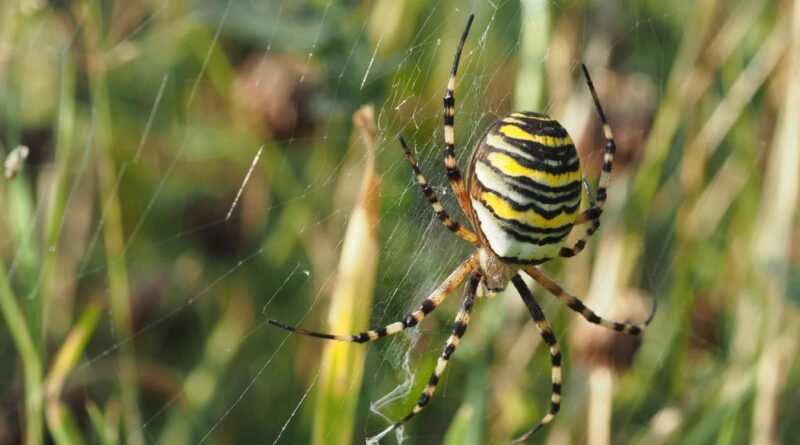‘Fascinating and saddening’: 30 new species seen in Bath due to changing climate
The crickets that chirp in the meadows are newcomers, as are the elegant wasp spiders and the colourful Jersey tiger moths.
A city farm in the Georgian city of Bath is the latest conservation organisation to highlight the creatures that would have been unheard of in the area before the climate emergency.
Volunteers have recorded 1,250 species on the 37-acre Bath City Farm over the last eight years, and experts have been surprised and concerned to find about 30 species that have moved in or have been found there in the winter where previously they would have visited only in the summer.
Ecologist and trustee Mike Williams, who led the wildlife recording, said insects and arachnids were important indicator species that help ecologists understand the effect of a changing climate on the natural world. “Spiders are a classic example, as due to their short lifespan and mobility, they react to changes in weather.”
Three years ago, the wasp spider was recorded on the farm for the first time ever and is now increasingly common in the area.
“In the early 1990s, we only ever saw the wasp spider on the south coast of England, in Dorset,” said Williams. “This was at the extreme north of their range because it was too cold for them. I would never have imagined then that one day they would be found as far north as Bath as we live with the realities of climate change.”
The Jersey tiger moth used to be found on the Channel Islands but has become an increasingly common sight across the south of England, including on the farm. Other recent new arrivals include the green meshweaver spider, the ivy bee and the lesser hornet hoverfly.
Williams used to work as a professional ecology consultant for organisations such as Natural England and the National Trust. Now, as he lives next to the farm, he studies changes on his doorstep rather than nationally.
“It fascinates and saddens me,” he said. “Our wildlife surveys have shown that climate change isn’t something that will happen in the distant future. Most of the crickets you hear calling in the meadows have only been in Bath for the past 20 years or so; these are Roesel’s bush-cricket and long-winged conehead. The former is very loud and very numerous. I tell people on my nature walks around the farm that they are listening to the sound of climate change when we hear them.”
Source : theguardian.com




